High purity powders are essential materials in numerous industries, from aerospace to pharmaceuticals. This comprehensive guide delves into the details of high purity powders, providing valuable insights into their types, compositions, properties, applications, specifications, suppliers, and more.
Overview of High Purity Powder
High purity powders are materials characterized by their extremely low levels of impurities. These powders are crucial in applications requiring high precision and performance. The purity of these powders ensures consistency in chemical reactions, mechanical properties, and electrical characteristics.
Key Details:
- Definition: Powder materials with very high levels of purity.
- Applications: Aerospace, electronics, pharmaceuticals, and more.
- Importance: Ensures precision, performance, and consistency in various applications.
Types of High Purity Powder
Here is a list of specific metal powder models, each with a brief description of their properties and uses:
- High Purity Aluminum Powder: Known for its excellent electrical conductivity and lightweight nature, commonly used in electronics and aerospace.
- High Purity Titanium Powder: Highly resistant to corrosion and boasts a high strength-to-weight ratio, ideal for biomedical implants and aerospace components.
- High Purity Copper Powder: Features superior thermal and electrical conductivity, used in electronic components and conductive inks.
- High Purity Iron Powder: Offers magnetic properties and high density, used in magnetic applications and powder metallurgy.
- High Purity Nickel Powder: Corrosion-resistant and excellent for use in batteries, catalysts, and superalloys.
- High Purity Silver Powder: Exceptional electrical conductivity and antibacterial properties, used in medical devices and conductive pastes.
- High Purity Gold Powder: Highly conductive and chemically inert, perfect for high-end electronics and medical applications.
- High Purity Zinc Powder: Essential for galvanizing processes and battery applications due to its corrosion resistance and electrochemical properties.
- High Purity Tungsten Powder: Known for its high melting point and density, used in high-temperature applications and radiation shielding.
- High Purity Molybdenum Powder: High melting point and strength, used in electronics and as an alloying agent in steel.
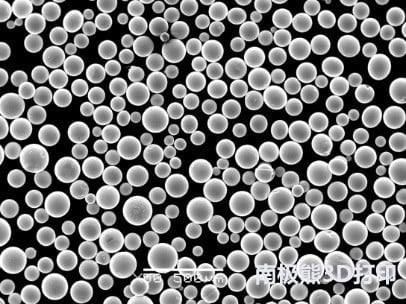
Composition of High Purity Powder
Understanding the composition of high purity powders is crucial as it determines their applications and properties.
| Metal | Purity Level | Primary Elements | Impurities |
|---|---|---|---|
| Aluminum | 99.99% | Al | Fe, Si |
| Titanium | 99.98% | Ti | O, C, Fe |
| Copper | 99.99% | Cu | Pb, Fe, Ni |
| Iron | 99.95% | Fe | C, Si, Mn |
| Nickel | 99.98% | Ni | S, Cu, Fe |
| Silver | 99.99% | Ag | Cu, Pb, Bi |
| Gold | 99.99% | Au | Ag, Cu, Fe |
| Zinc | 99.99% | Zn | Pb, Cd, Fe |
| Tungsten | 99.97% | W | Mo, Fe, Ni |
| Molybdenum | 99.98% | Mo | Fe, Cu, Si |
Properties and Characteristics of High Purity Powder
| Metal | Density (g/cm³) | Melting Point (°C) | Electrical Conductivity | Corrosion Resistance |
|---|---|---|---|---|
| Aluminum | 2.70 | 660.3 | Excellent | Good |
| Titanium | 4.51 | 1668 | Good | Excellent |
| Copper | 8.96 | 1084 | Superior | Moderate |
| Iron | 7.87 | 1538 | Moderate | Low |
| Nickel | 8.90 | 1455 | Good | Excellent |
| Silver | 10.49 | 961.8 | Superior | Moderate |
| Gold | 19.32 | 1064 | Superior | Excellent |
| Zinc | 7.14 | 419.5 | Moderate | Good |
| Tungsten | 19.25 | 3422 | Low | Excellent |
| Molybdenum | 10.28 | 2623 | Moderate | Good |
Applications of High Purity Powder
Applications Table:
| Industry | Metal | Application |
|---|---|---|
| Aerospace | Aluminum | Lightweight structural components |
| Biomedical | Titanium | Implants and prosthetics |
| Electronics | Copper | Conductive inks, circuit boards |
| Magnetic | Iron | Magnetic cores, inductors |
| Energy Storage | Nickel | Batteries, superalloys |
| Medical Devices | Silver | Antibacterial coatings, conductive adhesives |
| High-End Electronics | Gold | Connector pins, bonding wires |
| Galvanization | Zinc | Corrosion protection coatings |
| High-Temperature | Tungsten | Heating elements, high-temperature alloys |
| Alloying | Molybdenum | Strengthening steel alloys, electronics |
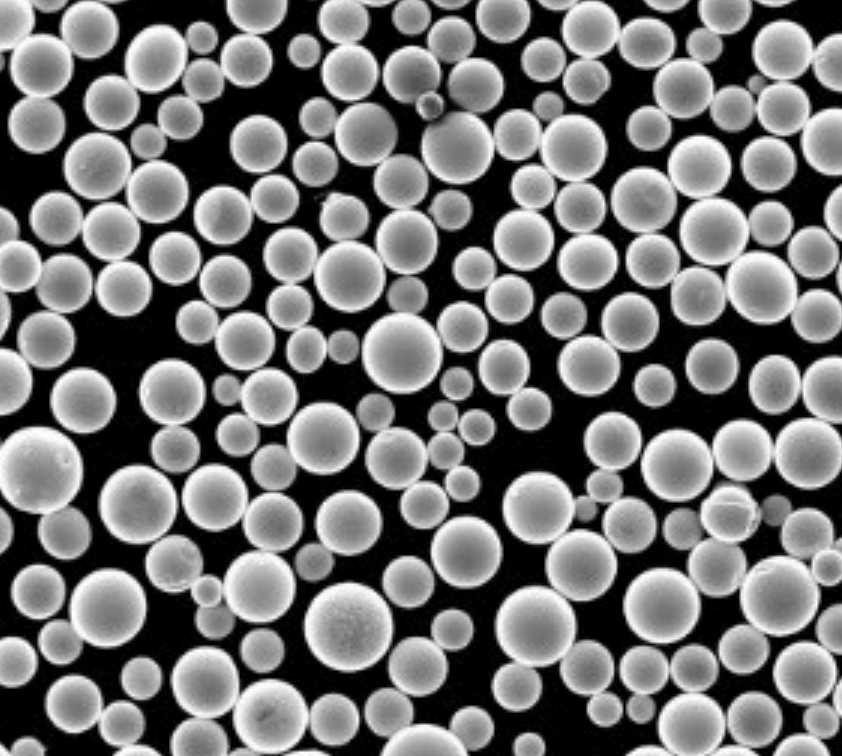
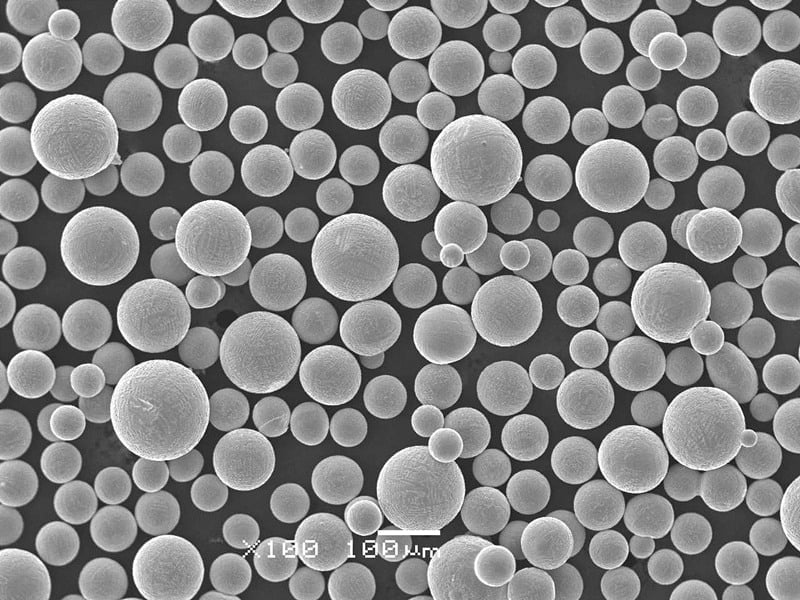

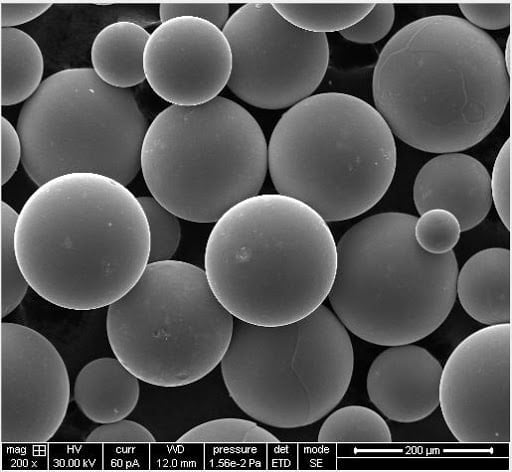
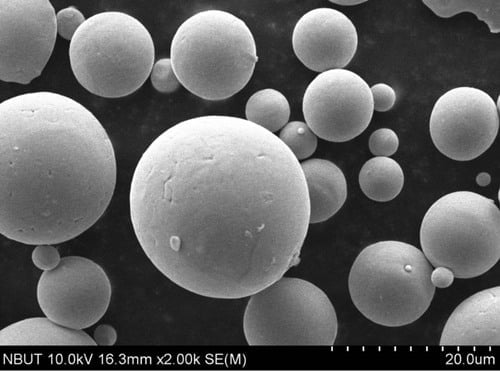
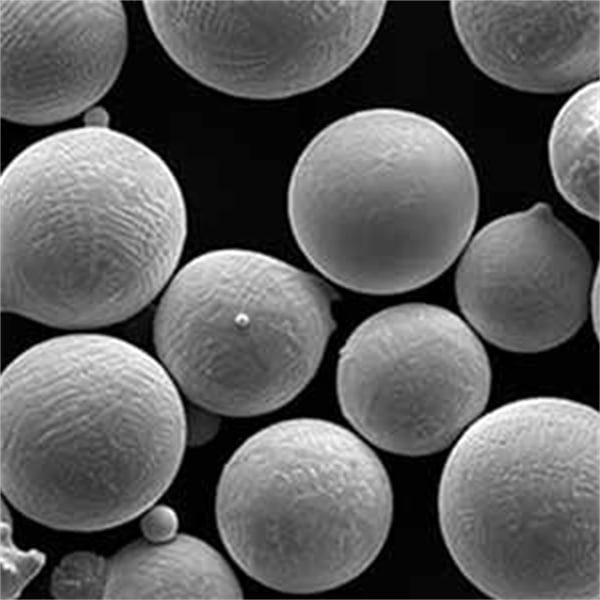
Specifications, Sizes, Grades, and Standards of High Purity Powder
Specifications Table:
| Metal | Purity (%) | Particle Size (µm) | Grade | Standard |
|---|---|---|---|---|
| Aluminum | 99.99 | <10 | 5N | ASTM B330 |
| Titanium | 99.98 | <45 | CP1 | ASTM F67 |
| Copper | 99.99 | <20 | 4N | ASTM B216 |
| Iron | 99.95 | <50 | Pure Iron | ASTM A331 |
| Nickel | 99.98 | <10 | Type 200 | ASTM B330 |
| Silver | 99.99 | <15 | 4N | ASTM B700 |
| Gold | 99.99 | <5 | 4N | ASTM B562 |
| Zinc | 99.99 | <40 | 5N | ASTM B329 |
| Tungsten | 99.97 | <20 | 3N | ASTM B777 |
| Molybdenum | 99.98 | <25 | 4N | ASTM B386 |
Suppliers and Pricing Details of High Purity Powder
Suppliers Table:
| Supplier | Metal | Price (per kg) | Country |
|---|---|---|---|
| American Elements | Aluminum | $300 | USA |
| Advanced Metal Suppliers | Titanium | $500 | Germany |
| Sigma-Aldrich | Copper | $200 | USA |
| IronPowderTech | Iron | $150 | China |
| Nickel-Powders Inc. | Nickel | $400 | USA |
| SilverTech | Silver | $600 | Canada |
| GoldSupplies | Gold | $1000 | Switzerland |
| ZincCoat | Zinc | $180 | South Korea |
| Tungsten Industries | Tungsten | $700 | UK |
| MolyMet | Molybdenum | $350 | Japan |
Pros and Cons of High Purity Powder
Comparison Table:
| Metal | Advantages | Disadvantages |
|---|---|---|
| Aluminum | Lightweight, high conductivity | Prone to oxidation |
| Titanium | Corrosion resistance, high strength | Expensive |
| Copper | Excellent conductivity, malleable | Can corrode |
| Iron | Magnetic properties, abundant | Susceptible to rust |
| Nickel | Corrosion resistance, strength | Expensive, potential allergen |
| Silver | Superior conductivity, antibacterial | High cost |
| Gold | Does not tarnish, excellent conductivity | Extremely expensive |
| Zinc | Corrosion resistance, low cost | Low melting point |
| Tungsten | High melting point, dense | Difficult to process |
| Molybdenum | High melting point, strength | Expensive |
In-Depth Look at Specific Metal Powders
High Purity Aluminum Powder
Aluminum powder, often referred to as ‘silver dust’, is integral to various industries. Its high conductivity and low weight make it indispensable in aerospace applications. Furthermore, its ability to form protective oxide layers helps prevent corrosion, albeit less effectively than other metals like titanium.
High Purity Titanium Powder
Titanium powder is widely used in the medical field for implants and prosthetics due to its biocompatibility. It’s also highly sought after in the aerospace industry for its strength-to-weight ratio and resistance to corrosion. The powder is produced with extreme care to ensure minimal contamination, often via the Kroll process or the FFC Cambridge process, both of which require high precision and control.
Applications:
- Biomedical: Dental implants, orthopedic implants, and prosthetics.
- Aerospace: Aircraft components, spacecraft parts, and high-performance engine components.
Advantages:
- High strength-to-weight ratio.
- Excellent corrosion resistance.
- Biocompatible for medical uses.
Disadvantages:
- Expensive compared to other metals.
- Processing can be complex and costly.
High Purity Copper Powder
Copper powder is used extensively in electronics and electrical applications due to its excellent electrical and thermal conductivity. It is also utilized in various chemical processes and as a catalyst in certain reactions. The purity of copper powder is crucial as even minimal impurities can significantly affect its conductivity and performance.
Applications:
- Electronics: Conductive inks, circuit boards.
- Chemical Industry: Catalysts in chemical reactions.
Advantages:
- Superior conductivity and thermal properties.
- Versatile in various applications.
Disadvantages:
- Prone to oxidation and corrosion.
- Relatively high cost.
High Purity Iron Powder
Iron powder is often used in magnetic applications and powder metallurgy. Its magnetic properties make it suitable for components like magnetic cores and inductors. High purity iron powder ensures that the magnetic properties are consistent and reliable.
Applications:
- Magnetic Cores: Inductors, transformers.
- Powder Metallurgy: Component manufacturing.
Advantages:
- Excellent magnetic properties.
- Good for powder metallurgy processes.
Disadvantages:
- Prone to rusting and corrosion.
- Less suitable for high-temperature applications.
High Purity Nickel Powder
Nickel powder is crucial in the manufacture of batteries, catalysts, and superalloys. It’s known for its excellent corrosion resistance and is used extensively in aerospace and energy applications. The powder is typically used in nickel-based superalloys for high-temperature applications.
Applications:
- Batteries: Nickel-cadmium and nickel-metal hydride batteries.
- Catalysts: Chemical processing.
- Superalloys: High-performance alloys for aerospace.
Advantages:
- High corrosion resistance.
- Strong and durable.
Disadvantages:
- Expensive.
- Potential allergen for some individuals.
High Purity Silver Powder
Silver powder is renowned for its exceptional electrical conductivity and antibacterial properties. It is often used in medical devices, conductive pastes, and electronics. Despite its high cost, the unique properties of silver make it indispensable in certain applications.
Applications:
- Medical Devices: Antibacterial coatings, wound dressings.
- Electronics: Conductive pastes, high-precision connectors.
Advantages:
- Superior electrical conductivity.
- Antibacterial properties.
Disadvantages:
- High cost.
- Tarnishes over time.
High Purity Gold Powder
Gold powder, though costly, is used in high-end electronics and medical applications where exceptional conductivity and chemical stability are required. Gold does not tarnish or corrode, making it ideal for long-term and high-reliability applications.
Applications:
- Electronics: Connector pins, bonding wires.
- Medical: Diagnostic tools, implantable devices.
Advantages:
- Excellent conductivity and chemical stability.
- Long-lasting and reliable.
Disadvantages:
- Very high cost.
- Limited availability.
High Purity Zinc Powder
Zinc powder is primarily used in galvanizing and battery applications. Its corrosion resistance is a key feature, making it valuable for protecting steel from rusting. In batteries, zinc plays a critical role in electrochemical reactions.
Applications:
- Galvanization: Coating for steel to prevent rust.
- Batteries: Zinc-carbon and zinc-air batteries.
Advantages:
- Good corrosion resistance.
- Cost-effective.
Disadvantages:
- Lower melting point compared to other metals.
- Limited use in high-temperature applications.
High Purity Tungsten Powder
Tungsten powder is notable for its extremely high melting point and density, making it suitable for high-temperature applications and radiation shielding. Its heavy nature and high strength make it ideal for uses where durability and heat resistance are critical.
Applications:
- High-Temperature: Heating elements, aerospace components.
- Radiation Shielding: Shielding for X-ray and gamma-ray equipment.
Advantages:
- Very high melting point.
- Dense and durable.
Disadvantages:
- Difficult to process.
- Expensive.
High Purity Molybdenum Powder
Molybdenum powder is used in electronics and alloying applications. Its high melting point and strength make it suitable for high-performance applications and steel alloys. Molybdenum’s ability to withstand high temperatures and stresses makes it valuable in various industrial processes.
Applications:
- Electronics: Electrical contacts, filaments.
- Alloying: Steel strengthening.
Advantages:
- High melting point and strength.
- Good for high-temperature applications.
Disadvantages:
- Costly.
- Processing can be challenging.
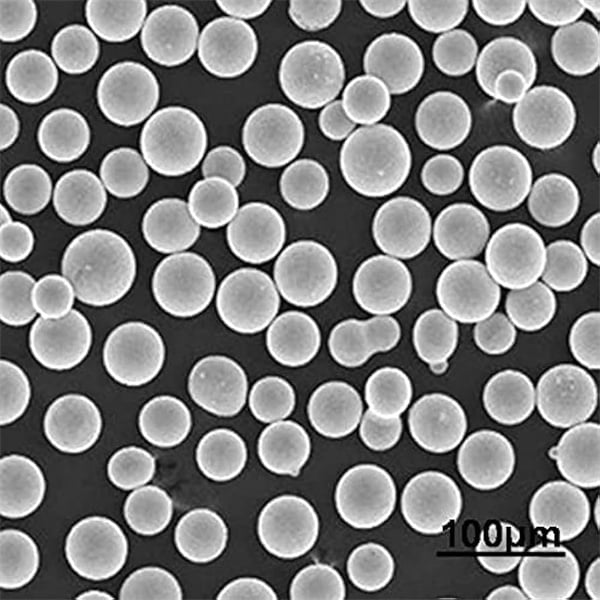
FAQ
| Question | Answer |
|---|---|
| What is high purity powder? | High purity powder refers to materials with minimal impurities, used in precise and high-performance applications. |
| Why is purity important in powders? | Purity ensures consistent performance, reduces the risk of defects, and meets the stringent requirements of high-tech applications. |
| What are the main applications of high purity powders? | Applications include aerospace, electronics, pharmaceuticals, and manufacturing. |
| How is high purity powder manufactured? | Methods include chemical vapor deposition, atomization, and milling, depending on the material. |
| What are the key properties to look for in high purity powders? | Important properties include purity level, particle size, density, and melting point. |
| How can I compare different high purity powders? | Compare based on purity levels, physical properties, cost, and specific applications. |
| Where can I buy high purity powders? | Suppliers include specialized metal powder manufacturers and distributors like Sigma-Aldrich and American Elements. |
Conclusion
High purity powders play a pivotal role in modern technology and industry. Their specific properties and applications make them invaluable in sectors ranging from aerospace to electronics. By understanding the different types, compositions, and characteristics, you can make informed decisions about which powder is best suited for your needs.
Whether you’re involved in manufacturing, research, or industrial applications, knowing the details of high purity powders helps ensure that you select the right material for your specific requirements. As technology advances, the demand for even higher purity and more specialized powders will continue to grow, driving innovation and performance across various fields.
About 3DP mETAL
Product Category
CONTACT US
Any questions? Send us a message now! After receiving your message, we will process your request with a whole team.
